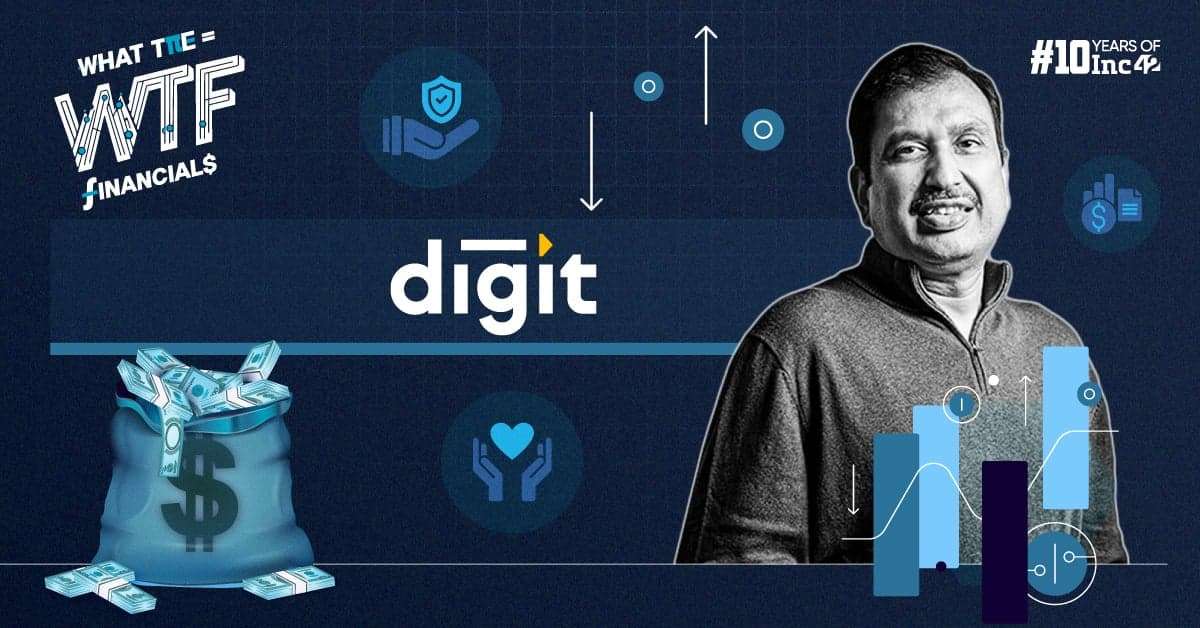Go Digit’s total gross written premium jumped 22.2% to INR 2,660 Cr in Q1 FY25 from INR 2,178 Cr in Q1 FY24
Net earned premium rose to INR 1,824 Cr during the period under review from INR 1,475 Cr in the year-ago quarter
The surge in GWP came largely on the back of growth in motor, health, travel, and personal accident premiums
Insurtech startup Go Digit General Insurance saw its profit after tax (PAT) soar 74% to INR 101 Cr in the June quarter (Q1) of the fiscal year 2024-25 (FY25) from INR 58 Cr in the year-ago quarter.
On similar lines, Go Digit’s total gross written premium (GWP) jumped 22.2% year-on-year (YoY) to INR 2,660 Cr in the quarter ended June 2024. The insurtech startup clocked a GWP of INR 2,178 Cr in Q1 FY24.
The surge came largely on the back of growth in third-party motor, health, travel, and personal accident premiums.
Go Digit’s net earned premium rose to INR 1,824 Cr during the period under review from INR 1,475 Cr in the year-ago quarter.
Third-party motor premiums were the biggest contributor to Go Digit’s GWP during the period at 36%, followed by health, travel and personal accident premiums at 22%. While own-damage insurance premiums accounted for 19% of the total GWP, fire-related premiums contributed 17%.
The insurtech startup’s total income, including net earned premium, income from investments, and other income, jumped more than 24% YoY to INR 2,076 Cr during the period under review.
The company said that its premium retention ratio declined marginally to 76.2% in Q1 FY25 from 76.9% in the year-ago period. At the end of June 2024, Go Digit had INR 17,773 Cr in assets under management (AUM) as against INR 15,764 Cr at the end of June 2023.
Founded in 2017 by Kamesh Goyal, Go Digit leverages technology to offer insurance policies across verticals such as health, motor vehicle, travel, and property. The startup is backed by the likes of Fairfax, Peak XV Partners, A91 Partners, among others.
The insurtech startup made a muted debut on the bourses earlier this year, with its shares listing at a premium of 5% to the issue price on the NSE.
(The story will be updated soon.)
Disclaimer
We strive to uphold the highest ethical standards in all of our reporting and coverage. We StartupNews.fyi want to be transparent with our readers about any potential conflicts of interest that may arise in our work. It’s possible that some of the investors we feature may have connections to other businesses, including competitors or companies we write about. However, we want to assure our readers that this will not have any impact on the integrity or impartiality of our reporting. We are committed to delivering accurate, unbiased news and information to our audience, and we will continue to uphold our ethics and principles in all of our work. Thank you for your trust and support.



![[CITYPNG.COM]White Google Play PlayStore Logo – 1500×1500](https://startupnews.fyi/wp-content/uploads/2025/08/CITYPNG.COMWhite-Google-Play-PlayStore-Logo-1500x1500-1-630x630.png)